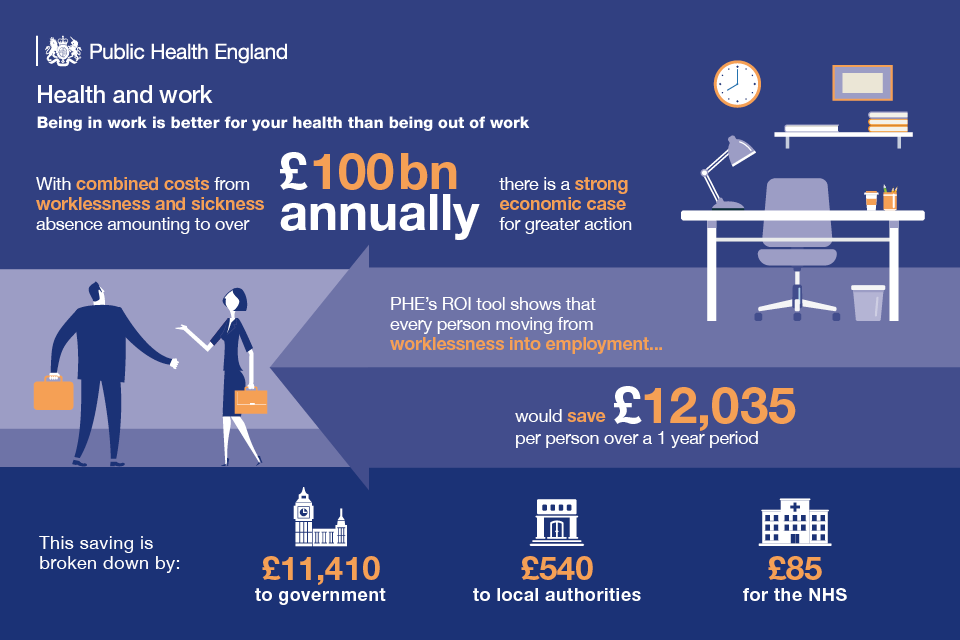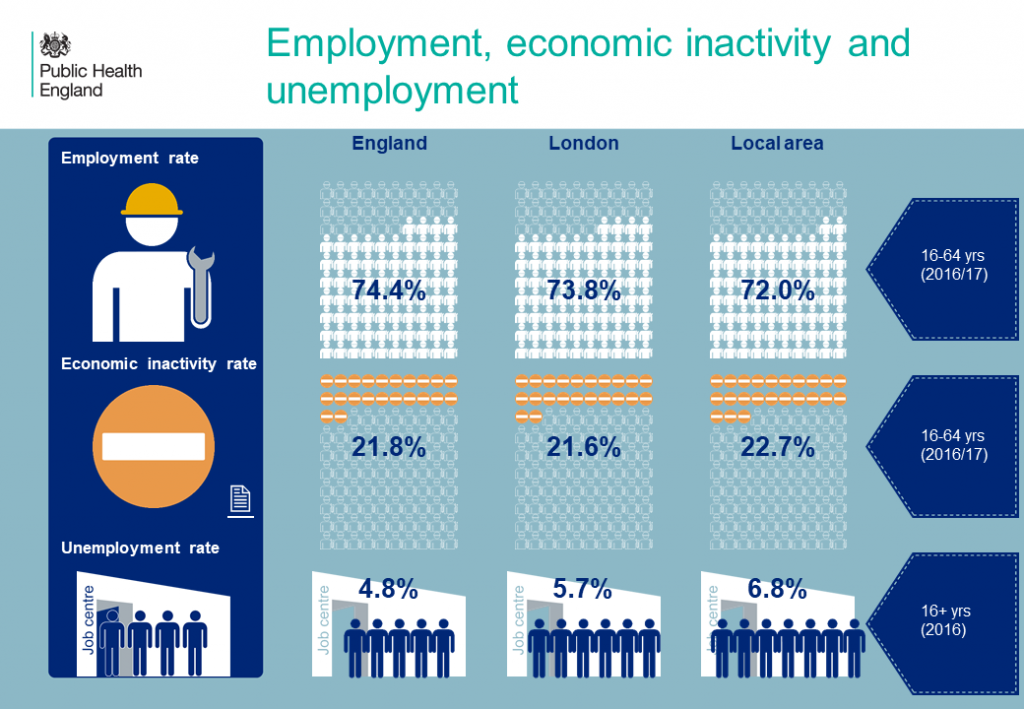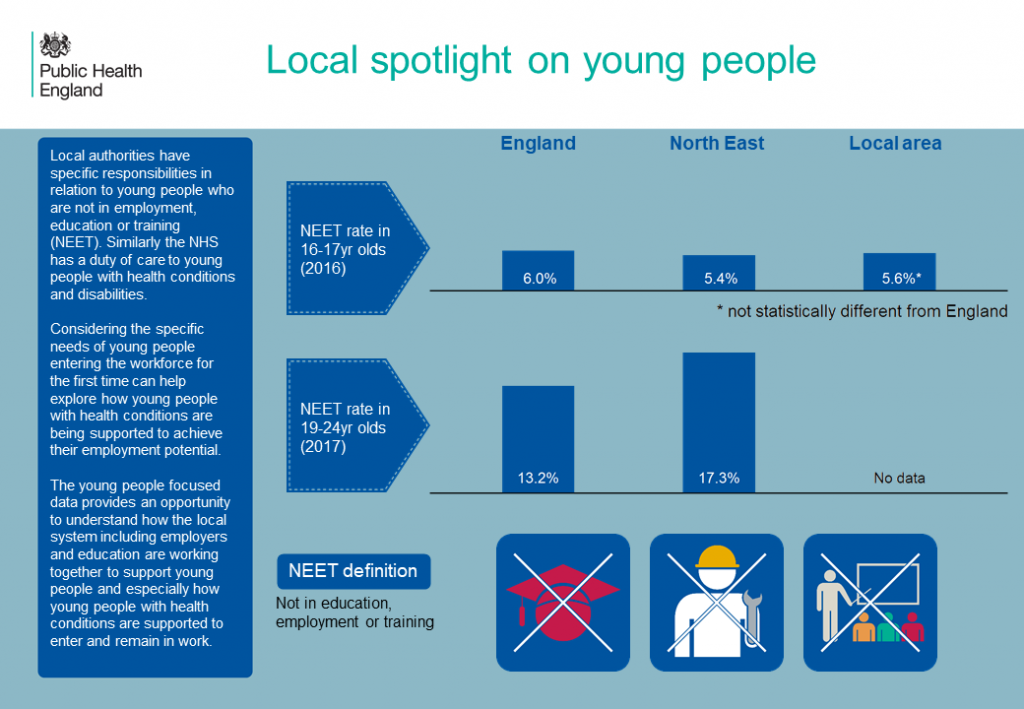
There are many compelling reasons to regard work and worklessness as important public health issues both at local and national level.
For us as individuals, good work is better for our health than being out of work.
Having a decent job boosts our wellbeing and quality of life and protects against social exclusion.
Conversely unemployment increases our risk of limiting illness and worsening mental health and impacts on families too.
The longer we’re out of work, the more likely it is to impact on our health.
But health isn’t just an individual issue and our communities and local businesses greatly benefit from a healthy and productive population.
Helping people with health issues to obtain or retain work, and be happy and productive within the workplace, is a crucial part of the economic success and wellbeing of every community.
The combined costs from worklessness and sickness absence amount to over £100bn annually, which makes it very clear that there’s an economic, as well as moral and ethical case, for greater action.
Making the case at local level
To help inform these crucial local conversations, we’ve created an infographic slide set for every county and unitary authority in England, presenting data on work, worklessness and health in an accessible format.

We developed the slide sets working in partnership with local authorities, after some national infographics first published in 2016 led to requests for more localised data.
The data we present is mostly drawn from the wider determinants profile on the PHE Fingertips platform and we hope the slide sets will be used by local partnerships, health and wellbeing boards and STPs to get a really clear picture of the situation in their community.
We include data on the following topics for each area.
- Employment rate, Economic inactivity rate and Unemployment rate
- Employment rate trend
- Long-term Jobseeker's Allowance claimants
- Learning disabilities employment gap
- Long term conditions employment gap
- Mental health conditions employment gap
- Musculoskeletal (MSK) conditions
- Employment issues and over 50yr olds
- Local spotlight on young people
- Local spotlight on sickness absence

Alongside the data, the slide sets also include a range of discussion and reflection points to explore the local context and response to the various issues, as well as resources to support local action.
What do you think?
We would value your views on the usefulness of this resource – please give feedback using our online form.
